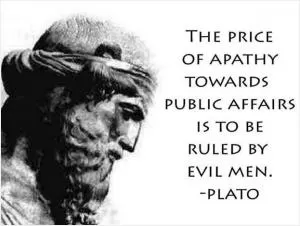Better a little which is well done, than a great deal imperfectly

Better a little which is well done, than a great deal imperfectly
In the context of Plato's philosophy, the idea that "better a little which is well done, than a great deal imperfectly" holds significant importance. Plato, a renowned Greek philosopher and the founder of the Academy in Athens, believed in the pursuit of excellence and the importance of achieving perfection in all aspects of life. This quote reflects Plato's belief that quality should always take precedence over quantity, and that it is better to focus on doing a few things well rather than spreading oneself too thin and producing subpar results.Plato's philosophy emphasizes the importance of virtue, wisdom, and knowledge in the pursuit of a fulfilling and meaningful life. He believed that true happiness and fulfillment could only be achieved through the cultivation of the soul and the pursuit of excellence in all endeavors. In this context, the idea that "better a little which is well done, than a great deal imperfectly" can be seen as a call to prioritize quality over quantity in the pursuit of knowledge, wisdom, and virtue.
Plato's famous allegory of the cave serves as a powerful metaphor for the importance of seeking truth and enlightenment. In the allegory, Plato describes a group of prisoners who are chained in a cave, facing a wall and only able to see shadows cast by objects behind them. The prisoners mistake these shadows for reality, until one of them is freed and sees the true forms of the objects outside the cave. This allegory highlights the importance of seeking knowledge and truth, and the transformative power of enlightenment.












 Friendship Quotes
Friendship Quotes Love Quotes
Love Quotes Life Quotes
Life Quotes Funny Quotes
Funny Quotes Motivational Quotes
Motivational Quotes Inspirational Quotes
Inspirational Quotes